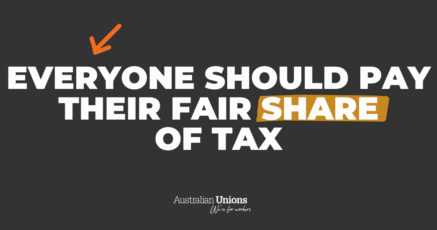The 2016 Census was a slow motion train crash.
In the weeks leading up to what’s previously been a mundanely uncontroversial exercise, community goodwill was tested by concerns about how the Census would be conducted, privacy and digital security.
The Government and ABS seemed unprepared to deal with these concerns and struggled to contain them.
For a few hours on Census night itself it looked like that controversy would be left behind. That was, of course, until the website was pulled down and social media exploded with complaints.
Whilst we all now look for villains, with the Prime Minister quickly promising that “heads will roll”, the reality of what led to this debacle is a simpler and more boring truth.
Good governance and good public services don’t happen by accident – they require long term investment and commitment. While there have been many failings along the way, the failure to invest and resource the ABS sowed the seeds for what happened on Tuesday, August 9.
Why the Census matters
Every five years the Census provides us with the opportunity to get a detailed picture of the lives of the Australian population.
This allows governments and policy-makers to make informed decisions about policy design and implementation. In an era where we want evidence-based policy, the Census is absolutely critical.
For example:
- Health policy: who needs what services, where
- Housing needs, now and into the future
- Future needs for schools and universities
And the data isn’t just available to governments and policy-makers.
Businesses and entrepreneurs can also freely access Census data – helping them design and build their businesses to match needs in the community. Whilst “innovation” and “agility” have become buzzwords, the Census is one of those things that governments can do well to foster innovation and agility and support business.
So how did it all go so wrong?
It’s fairly clear that this was a disaster waiting to happen, but it’s by no means the only one. We’ve been warning the Government for years that arbitrary cuts have consequences.
The ABS, like other Commonwealth agencies, has faced years of budget cuts. The so called “efficiency dividend”, which arbitrarily cuts agency budgets every year by a percentage amount, has hit the ABS hard. For a number of years Governments have increased the efficiency dividend as a way of dealing with budget shortfalls, pushing the hard decisions of resourcing and cuts onto agencies. The last budget was no different with the Turnbull Government again slugging agencies with a 2.5% efficiency dividend.
Since 2010 ABS has had to contend with budget cuts in the order of nearly $100 million as a result of this and other measures. Dealing with these cuts is particularly difficult for an agency with statutory responsibilities that they have to discharge – it is not easy for ABS to just decide to cut a program.
ABS has also faced staffing cuts. The Census is obviously a significant undertaking for ABS, and budget papers reveal that in 2011-2012, the last time the Census was conducted, ABS had 700 more staff than it does today.
On top of all of this, the Government failed to appoint a new Australian Statistician for 11 months following the departure of Brian Pink – leaving the ABS without a permanent chief for most of 2014.
This history of cuts and budget pressure give you an idea of the position ABS was in coming into this Census – an agency under pressure and desperate to save money wherever it could.
And so ABS tried to run the Census on the smell of an oily rag.
In fact, Chief Statistician David Kalisch boasted at Senate Estimates that the Census, which usually cost around $450m, would be $100m cheaper this year because they were conducting it primarily online. Now, instead of saving $100m, the question has to be asked whether ABS has the resources to deal with the additional call centre hours and the processing of more paper forms than expected.
More important than that financial price though has been the costly damage to the ABS’s reputation and the lost opportunities from a discredited and distrusted 2016 Census. It is critical that ABS has the funds to restore its reputation and rebuild community trust without delay.
It’s everyone-else’s fault
It does seem apparent that there have been errors by ABS senior management – poor calls, rushed processes.
Questions also have to be asked about the role of IBM as the IT outsourced provider, underlining the fundamental question of accountability when public services are outsourced.
But the Prime Minister’s finger pointing has overlooked the obvious fact that, at the end of the day, the buck has to stop with his Government.
It’s the Government who has cut funding, cut staff – it is the Government who failed to invest in public sector agencies like the ABS thinking there would be no consequences.
Melissa Donnelly is Deputy Secretary of the CPSU.






SHARE:
#CensusFail – the CPSU perspective